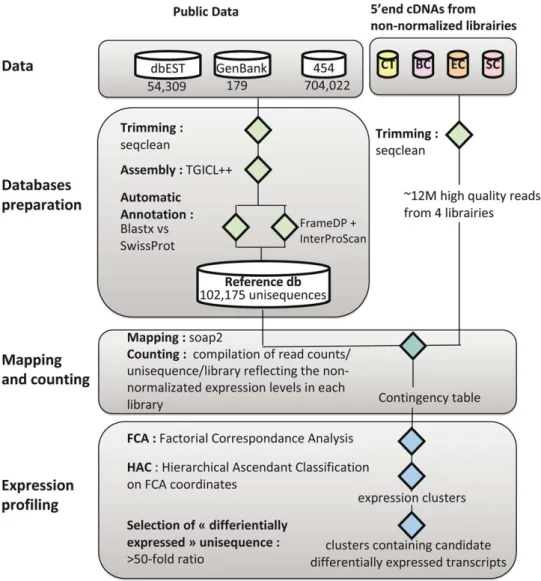Specific versus non-specific immune responses in an invertebrate species evidenced by a comparative de novo sequencing study.
Texte intégral
Figure




Documents relatifs
After 3 days exposure, AlCl 3 ·6H 2 o treated animals showed high Al levels in liver and intestine, while upon treatment with Al 0 NMs significant amounts of Al were detected only
Simulations for 2010: SMOS, LPRM, simulated soil moisture data from CDF matching and copulas, and ground measurements over the four watersheds.. Since the in situ data are the mean
Zusammenfassung:
The upper part of the Table gives estimations of some parameter values characterizing the CD8 T cell immune response (proliferation and differentiation rates of effector cells,
Significant KEGG terms related to viral infections and immune signalling were identified through KEGG enrich- ment analyses performed for each up- and down-regu- lated genes (343
A significant decrease in RB in milk polymorphonuclear leukocytes (PMN) post-calving was not observed; milk PMN from healthy cows showed low RB levels, while the values from
-immunological memory. It “remembers” that it has encountered an invading organism and reacts more.. rapidly on subsequent exposure to the same organism. 3-Each of the
Pour construire son schéma, le lecteur réunira ses fiches de travail, les corrigés et les guides pour la construction de sens des trois leçons précédentes1. Il partira, cette fois,
